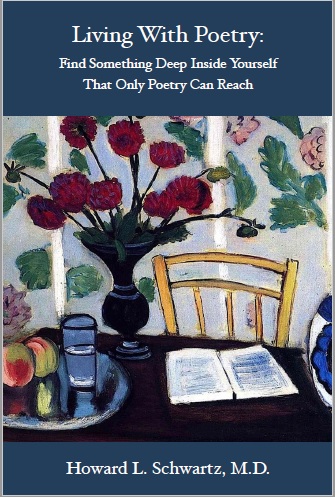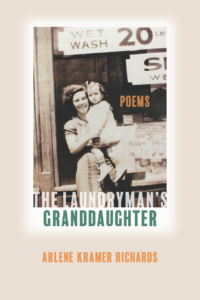Living with Poetry by Howard L. Schwartz
$19.95
Living with Poetry: Find Something Deep Inside Yourself You Didn’t Know Was There by Howard L. Schwartz, M.D.
From the Foreword by Edmund Chaitman, M.D. (Dr. Chaitman is a member of the New Jersey Psychoanalytic Society.):
Of all the statements about the purpose of poetry, Ezra Pound’s is the most relevant: “The purpose of poetry is to throw affect on the page.”
It was, therefore, no surprise to me on opening Howard Schwartz’s Living with Poetry to learn that he turned to poetry to help him deal with the feelings stirred by the death of his mother. Howard is an effective analyst who has spent much of his working life doing what analysts do, helping patients identify their affects, and deal with them effectively.
So, in this volume, Howard continues his analytic work, identifying, clarifying, and sharpening affects. But this time, the analytic work is especially liberating. For rather than dealing with the affects his patients bring to him, he chooses the poets and writes his own poetry, presenting material which is most essential to him. This collection of poems, taken in its totality, deals with loss, mortality, and (unspoken—as seen most clearly in the coda), the meaning of living a good life.
How does one proceed to build a new life, one poet asks, weighed down by memories in their pockets? Dr. Schwartz’s answer involves friends, family, and “Just Stand Up.” by Sabine Bos, his granddaughter.
“Just Stand Up” is a statement of both accepting affects and, more importantly, a call to move forward. This call to action and the dangers of the inhibited, unlived life are the themes of my own favorite poem: T.S. Eliot’s “The Love Song of J. Alfred Prufrock.” Prufrock bemoans the fact that he did not “stand up.” Instead, hampered by a hundred decisions and indecisions, does he dare to eat a peach? He has measured out his life in coffee spoons. How much better had he been “a pair of ragged claws scuttling across the floor of the seas.”
I was astounded to learn, many years after reading Prufrock in Freshman English, that Eliot was only 23 when he wrote the poem. The cause of such despair in a young man, I do not know. But we do know Sabine and Schwartz’s remedy as suggested in the coda: Edward Field’s “Mark Twain and Sholem Aleichem.” After a little good-natured (and I think essentially Jewish) ribbing, the two men, near the end of their lives, cavort in the sea (echoing Eliot’s claws in the sea), laughing and living life to the fullest.
I believe Howard has lived his life to the fullest, and this volume may help others to cavort with Mark Twain and Sholem Aleichem.
If you do, you will not be in bad company.
In stock




